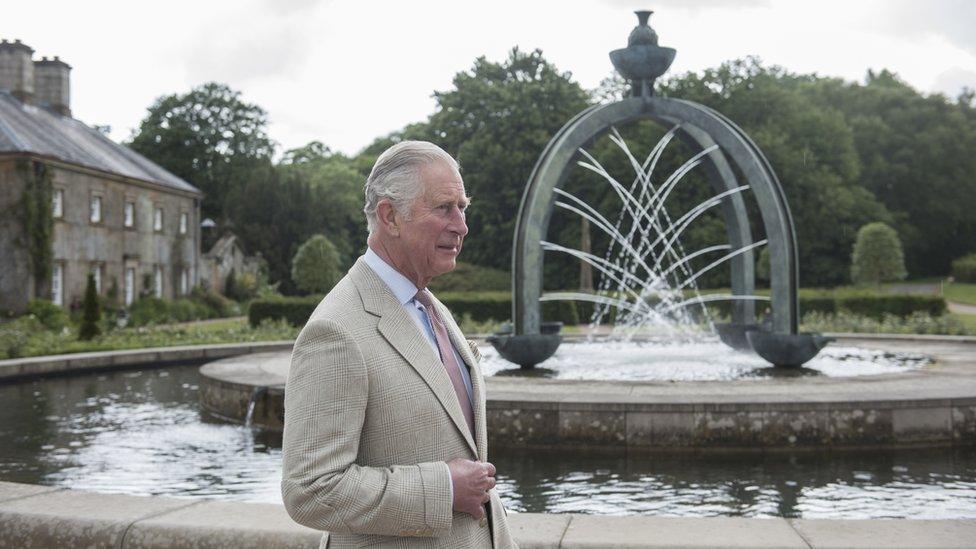Prince Charles and Camilla make history in Cuba
- Published
Prince Charles and Camilla arrived from Barbados
The Prince of Wales and Duchess of Cornwall have made history by becoming the first members of the royal family to visit Cuba in an official capacity.
Prince Charles and Camilla's trip is being seen as an attempt to help form closer ties between the UK and Cuba, which were foes during the Cold War.
The couple attended a wreath-laying ceremony for Cuba's national hero, the essayist and poet Jose Marti.
They are due to join the country's president for an official dinner.
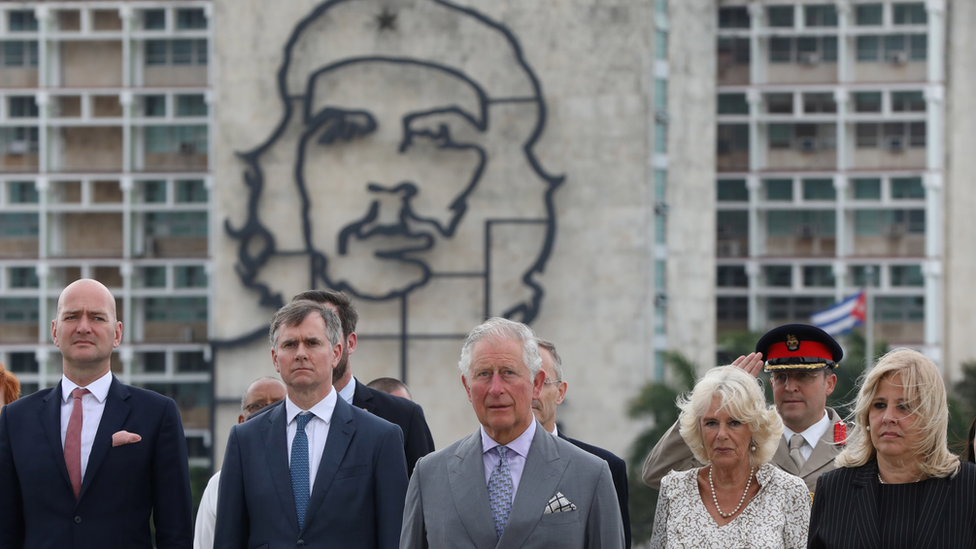
Prince Charles and Camilla were greeted near an image of late revolutionary hero Ernesto "Che" Guevara
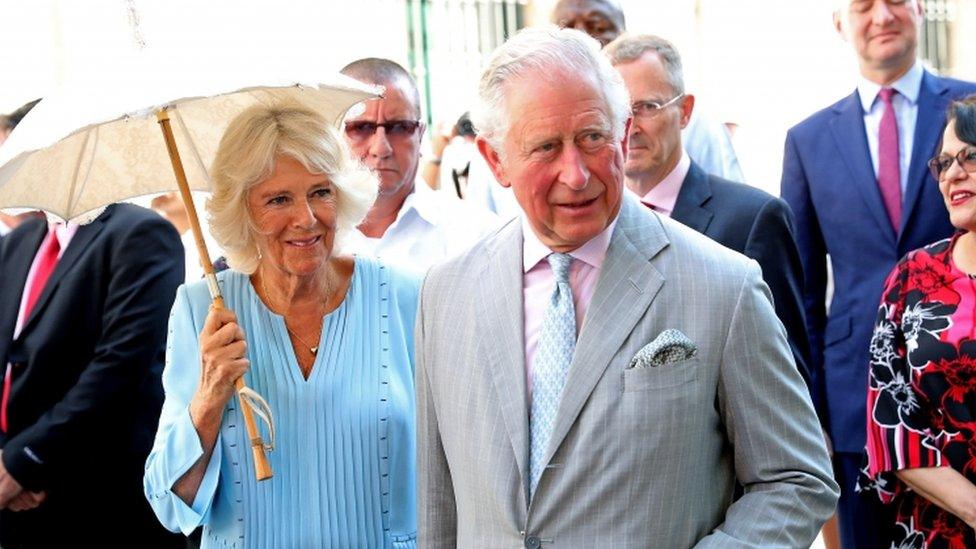
The couple were taken on a tour of Old Havana
Later this week they will be joined by Commonwealth minister Lord Ahmad, who is flying to the country to represent the UK government.
His presence is an indication of how important Downing Street views the four-day Cuban visit and its potential to develop new avenues with a country that has already begun the process of opening up economically and socially.
After the couple stepped on to Cuban soil from the UK ministerial jet RAF Voyager on Sunday, there were brief handshakes from Cuban officials before they were taken to the wreath-laying ceremony.
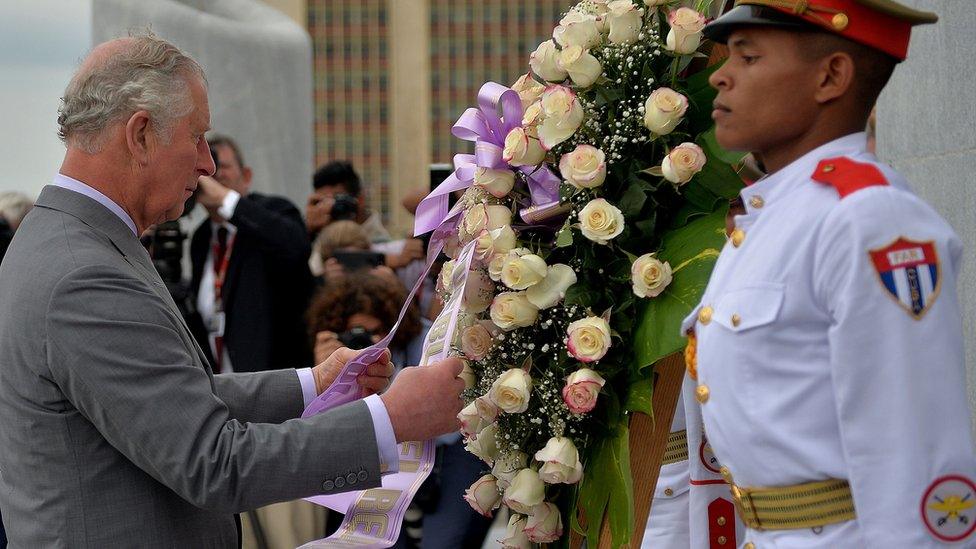
The couple attended a wreath-laying ceremony for Cuba's national hero, poet Jose Marti
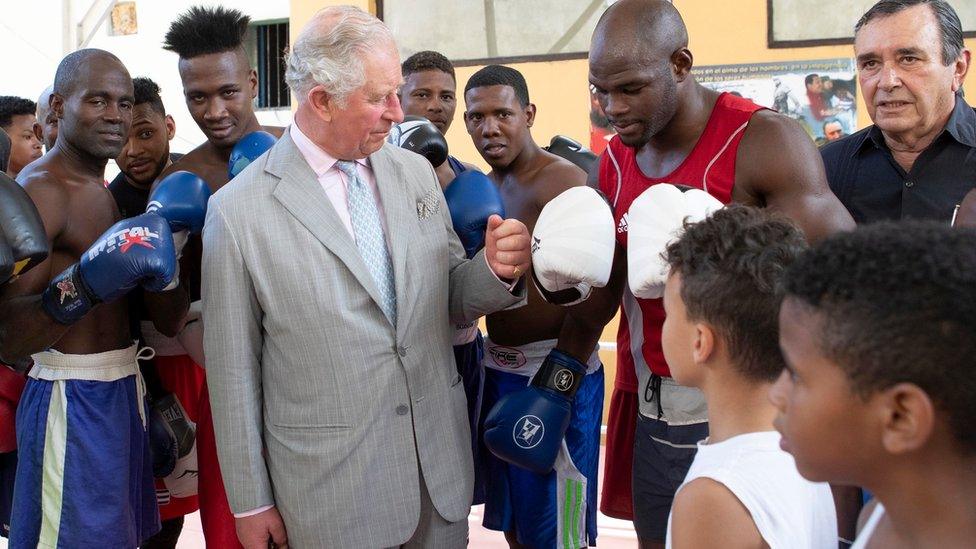
Prince Charles met boxers training at a gym in Old Havana
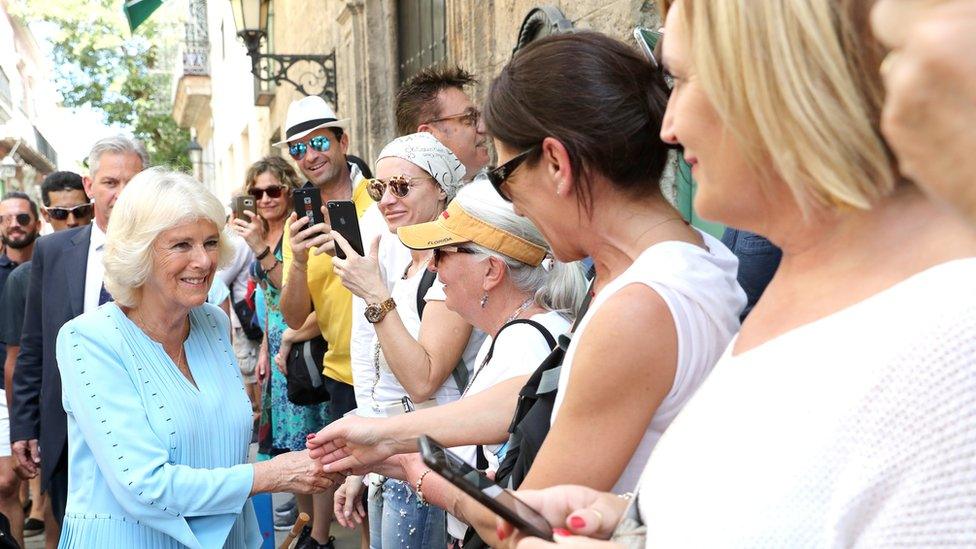
Duchess of Cornwall greets well-wishers during a guided tour of Old Havana
Prince Charles stood in silent contemplation as a large wreath of roses was laid at the open-air monument in Havana's Revolution Square.
Monday began with the Prince of Wales and the Duchess of Cornwall going on a tour of Old Havana.
The royal couple met locals and tourists during the walkabout among the city's 18th-century colonial Spanish buildings.
Prince Charles later met boxers training at a gym, while his wife visited a maternity home.
The royal couple arrived from Barbados, one of five Commonwealth realms they have visited.
St Kitts and Nevis, Grenada, St Lucia, and St Vincent and the Grenadines have also featured on their tour.
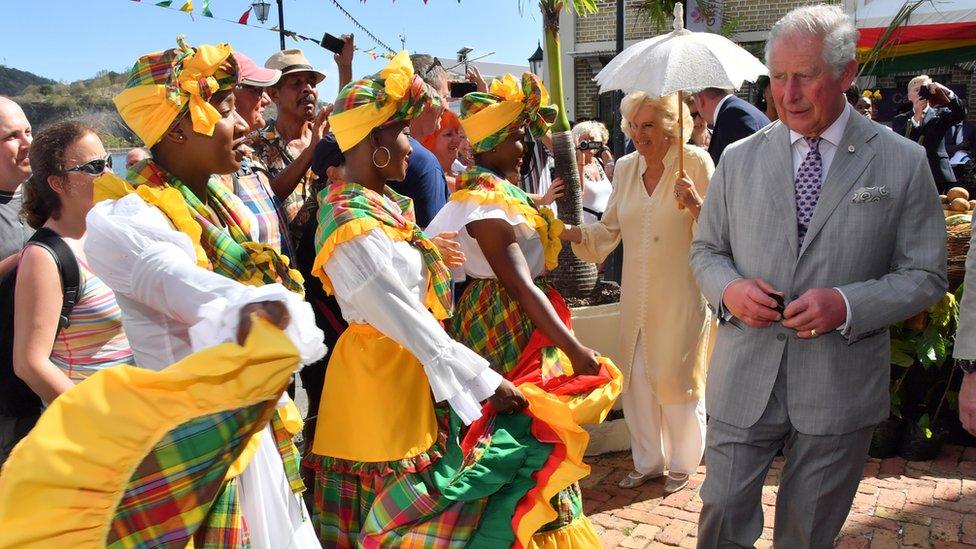
The royal couple visited Grenada earlier in their trip
Fractious relations between Cuba and the West stem back to before the 1800s.
Cuba - a former Spanish colony - was ceded to the US in 1898 and four years later became independent under US protection.
But at the height of the Cold War in 1959, a guerrilla army led by Fidel Castro defeated the US-backed Batista government, establishing a communist state.
The armed revolution prompted a US trade embargo, known as the blockade or "el bloqueo" in Spanish.
Coupled with similarities of ideology, the embargo pushed Cuba into the arms of the Soviet Union.
The US discovered Soviet nuclear missiles on Cuba in 1962, which almost led to a nuclear war.
In 2014, after 50 years of severed ties, the US and Cuba announced a move to normalise diplomatic relations.
But in 2017, US President Donald Trump rolled back some of the restrictions eased by his predecessor.
The BBC's royal correspondent Nicholas Witchell said this week's visit showed the UK was in a "strikingly different" position to the US.
British diplomats "clearly feel it's time to send a message of encouragement to the Cuban government to move further along the road to economic and political reform," he said.
In recent years, private enterprise in Cuba has been encouraged, although it has been scaled back amid fears the reforms were fuelling inequality.
The prince and his wife will also be meeting members of the Buena Vista Social Club at a recording studio in Havana.
The group became worldwide celebrities when their 1997 album became a surprise global hit and Grammy award winner.
- Published8 November 2018
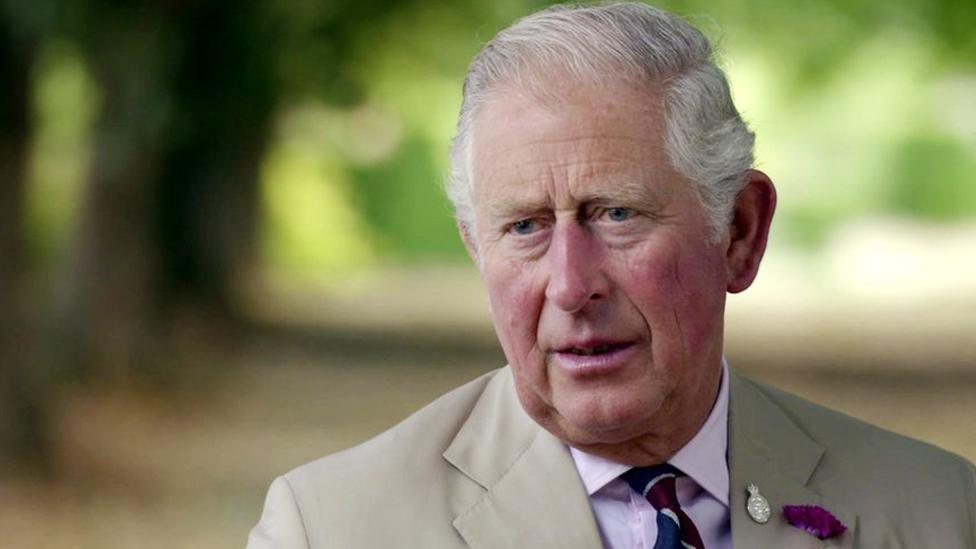
- Published7 November 2018
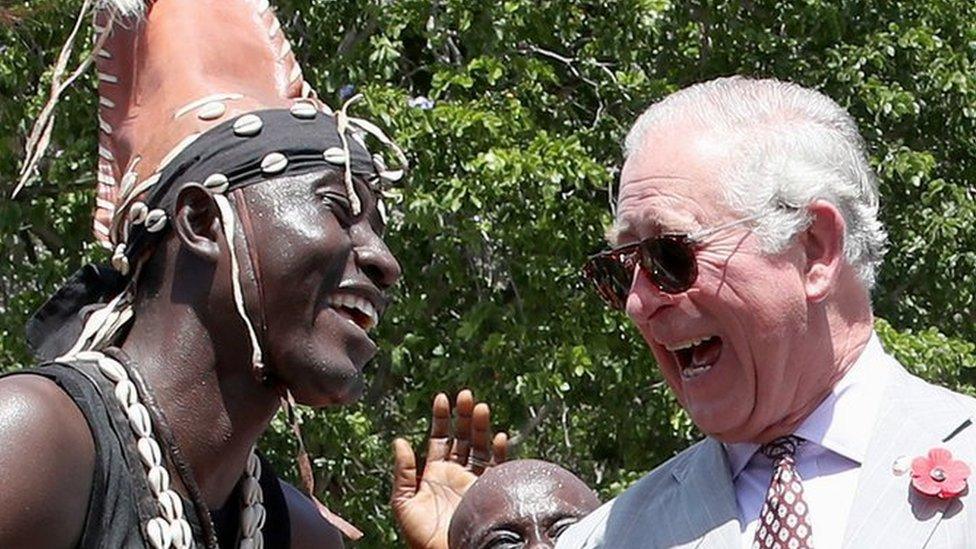
- Published4 November 2018
